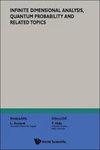由H > 12的fBm驱动的Ito型随机微分方程拟线性系统的Wong-Zakai逼近
IF 0.8
4区 数学
Q4 MATHEMATICS, APPLIED
Infinite Dimensional Analysis Quantum Probability and Related Topics
Pub Date : 2021-11-09
DOI:10.1142/s0219025723500224
引用次数: 0
摘要
在最近的一篇文章中,Lanconelli和Scorolli(2021)将Oksendal和Hu(1996)提出的It\^o随机微分方程的wong - zakai型近似扩展到多维情况。本文的目的是将后一种结果扩展到由分数布朗运动(fBm)驱动的It\^o型随机微分方程系统,就像Hu(2018)所考虑的那样。fBm的协方差结构使我们无法使用与Lanconelli和Scorolli使用的方法相同的方法,而是使用截断的Cameron-Martin展开作为fBm的近似。我们很自然地研究了一个由若干空间变量组成的半线性双曲演化方程系统,我们利用它来构造Wong-Zakai近似系统的解。我们证明了逼近序列的每个元素的定律在分布意义上解决了一个福克-普朗克方程,并且当展开式中的项数趋于无穷时,该序列收敛于Ito ^o方程的解。本文章由计算机程序翻译,如有差异,请以英文原文为准。
Wong-Zakai approximations for quasilinear systems of Ito's type stochastic differential equations driven by fBm with H > 1 2
In a recent article Lanconelli and Scorolli (2021) extended to the multidimensional case a Wong-Zakai-type approximation for It\^o stochastic differential equations proposed by \Oksendal and Hu (1996). The aim of the current paper is to extend the latter result to system of stochastic differential equations of It\^o type driven by fractional Brownian motion (fBm) like those considered by Hu (2018). The covariance structure of the fBm precludes us from using the same approach as that used by Lanconelli and Scorolli and instead we employ a truncated Cameron-Martin expansion as the approximation for the fBm. We are naturally led to the investigation of a semilinear hyperbolic system of evolution equations in several space variables that we utilize for constructing a solution of the Wong-Zakai approximated systems. We show that the law of each element of the approximating sequence solves in the sense of distribution a Fokker-Planck equation and that the sequence converges to the solution of the Ito\^o equation, as the number of terms in the expansion goes to infinite.
求助全文
通过发布文献求助,成功后即可免费获取论文全文。
去求助
来源期刊
CiteScore
1.50
自引率
11.10%
发文量
34
审稿时长
>12 weeks
期刊介绍:
In the past few years the fields of infinite dimensional analysis and quantum probability have undergone increasingly significant developments and have found many new applications, in particular, to classical probability and to different branches of physics. The number of first-class papers in these fields has grown at the same rate. This is currently the only journal which is devoted to these fields.
It constitutes an essential and central point of reference for the large number of mathematicians, mathematical physicists and other scientists who have been drawn into these areas. Both fields have strong interdisciplinary nature, with deep connection to, for example, classical probability, stochastic analysis, mathematical physics, operator algebras, irreversibility, ergodic theory and dynamical systems, quantum groups, classical and quantum stochastic geometry, quantum chaos, Dirichlet forms, harmonic analysis, quantum measurement, quantum computer, etc. The journal reflects this interdisciplinarity and welcomes high quality papers in all such related fields, particularly those which reveal connections with the main fields of this journal.

 求助内容:
求助内容: 应助结果提醒方式:
应助结果提醒方式:


